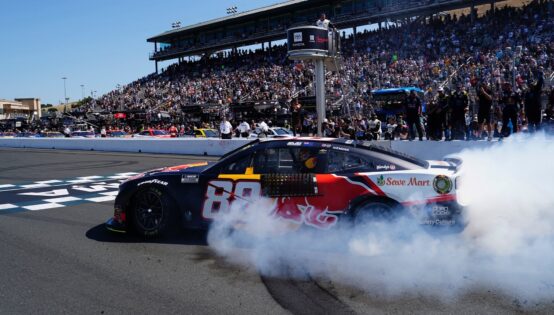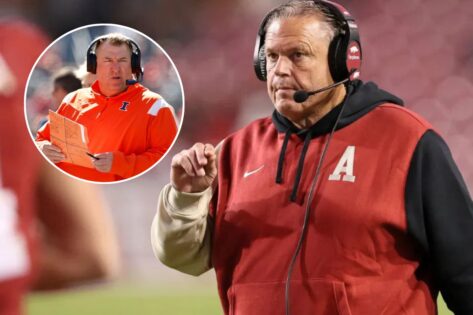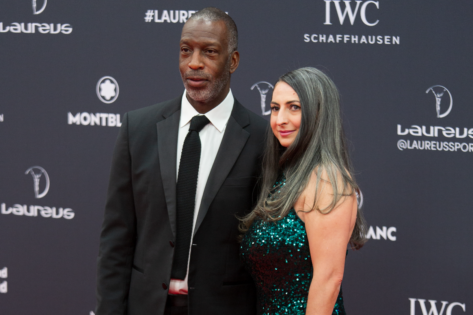Shane van Gisbergen has taken to NASCAR’s road-course calendar ferociously. In his very first Cup appearance at Chicago in 2023, he stormed from 18th on the grid, threaded through traffic on wet slicks, and became the first debutant to win a Cup event in 60 years. In his rookie season driving the #88 Chevy for Trackhouse Racing, the Kiwi driver has been on a roll. Three Cup wins and a spot in the playoffs. After conquering Mexico City and sharp turns of Chicago, SVG created history with his triumph at Sonoma. He broke Jeff Gordon’s 2004 laps-led mark at the track and captured his 4th Cup win in just 34 starts.
But his commercial journey has been equally varied as his trophy haul. When Trackhouse Racing’s PROJECT91 plucked him for Chicago, the #91 Camaro wore Enhance Health blue, while longtime personal backer Quad Lock rode along as an associate partner. One year later, Trackhouse committed to a partial schedule for SVG and paired him with a new U.S. partner, WeatherTech on the streets of Detroit, and AdventHealth at COTA. But one $36 billion partner from his Supercars days has made a powerful return, prominently displayed on his chest during his NASCAR triumphs, which could potentially lead to a larger sponsor rivalry.
Kevin Harvick sees energy drinks reviving NASCAR’s iconic brand battles
In the recent episode of Kevin Harvick’s ‘Happy Hour’ podcast, along with Kaitlyn Vincie and Mamba Smith, the trio discussed the Kiwi driver’s exceptional versatility and raw talent, comparing him to NASCAR legends who dominated the sport at the time. “I think the stat that really helps tell this story in its entirety is, first driver to get four wins in the fewest starts since 1967,” said Vincie. That’s been 31 years since someone has done that. That is pretty impressive, right?”
The impressive statistical feat immediately draws comparisons to one of motorsports’ true legends, as Harvick noted on the podcast, “The name next to that stat is Parnelli Jones.” Jones was not merely a “big deal” but a bona fide racing legend whose career spanned from winning the Indianapolis 500 in 1963 to dominating in off-road racing and a significant prowess on road courses. Smith added to the sentiment, asking, “Which actually kind of makes a little bit of sense, isn’t Parnelli… didn’t he have a road course racing background too?” and it is indeed true. His ability to master different forms of racing made him a hero of his era, much like SVG’s rapid adaptation from V8 Supercars to NASCAR.
Beyond the on-track heroics, SVG’s success also signals a significant triumph for one of his primary sponsors: Red Bull. “I think that when you look at SVG, well, there’s a couple things here. One, the sponsor on the side of that car,” continued Harvick. “Well, when you have Red Bull on the side of your car, Red Bull came into this sport in 2005-ish, and had just a terrible experience with the way that they put the team together, the performance on the racetrack.” Their ambitious entry into NASCAR in 2007 aimed to replicate their Formula 1 success, but they struggled profoundly to find their footing in the unique environment. The team also became notorious for its frequent personnel changes, particularly among crew chiefs. The best-known example is that of Brian Vickers having 3 different crew chiefs in 2009 alone.
DAYTONA, FL – FEBRUARY 09: Kevin Harvick, driver of the 4 Stewart-Haas Racing Busch Light PIT4BUSCH Ford Mustang, during Daytona 500 Qualifying on February 9, 2020 at Daytona International Speedway in Daytona Beach, Fl. Photo by David Rosenblum/Icon Sportswire AUTO: FEB 09 NASCAR, Motorsport, USA Cup Series – DAYTONA 500 Icon2002093418500
But Harvick knows that times have changed. “Everything that happened with Red Bull’s experience in NASCAR is the exact opposite of what just happened yesterday,” said Harvick. “With Shane going to Victory Lane, his relationship, bringing Connor Zilich on board with that Red Bull relationship.” Red Bull’s relationship with SVG also extends to nurturing young American talent like Connor Zilisch, competing in the NASCAR Xfinity Series for JR Motorsports with the prominent brand backing.
The dynamic of ‘beer wars’ for decades, where marketing giants poured massive resources into NASCAR sponsorships, leading to iconic paint schemes, extensive advertising, and elaborate fan activations, is missed in the modern era. And Harvick wants energy drinks to take the stage now. “The energy drink sector of what we do, we need Red Bull and Monster to compete,” Harvick suggested. “Whether it be marketing, advertising, just like Budweiser, Coors Light, Miller Light used to do back in the day. When you have those big companies like that, that are engaged in the marketing side of things, it brings a whole new element to the marketing side of things. And that is good for our sport.”
Back then, the most legendary rivalry was between Dale Earnhardt Sr.‘s Goodwrench Chevrolet alongside Budweiser promotions, and Rusty Wallace’s Miller Lite Ford. The brands battled not just on the track but through pervasive marketing campaigns that permeated fan culture. Red Bull’s return might just add fuel to a marketing revival that NASCAR needs. And with every win, SVG makes it clear that the sport’s future might just wear a Kiwi smile.
Kevin Harvick backs NASCAR’s Sunday race legacy
On the topic of NASCAR’s scheduling, Kevin Harvick isn’t pulling any punches. On his podcast, Harvick laid down the belief with absolute clarity: “Cup races are for Sundays.” For him, this isn’t just a nostalgic preference but a foundational principle, one that aligns with decades of fan ritual and historic precedent. From the legendary 1979 Daytona 500 to the modern-day spectacle, Sunday races have always defined the sport’s identity.
Harvick’s viewpoint also resonates with the data. The 2024 Daytona 500, held on a Sunday, averaged nearly 6 million viewers, while the Saturday-night Bristol race drew just over 3 million. Even early 2025 numbers show that Sunday Cup races on Amazon Prime are outperforming Saturday Xfinity events on The CW. “I do like night races,” Harvick admitted, “but we’ve had a lot of Sunday night races,” highlighting that tradition doesn’t have to exclude innovation, as long as it’s still on Sunday.
While Ryan Blaney pointed out that Saturday races offer drivers more time with family, Harvick’s stance remains firm. “If you want a weekend off, let’s give them a weekend off, but Cup races are for Sundays,” he concluded. The debate speaks more than just scheduling, it’s about preserving the culture of NASCAR, balancing family, viewership, and the expectations of a fanbase that has been tuned in on Sundays for generations.
The post Kevin Harvick Predicts New Budweiser-Miller Rivalry as SVG’s $36B Sponsor Sees Hope appeared first on EssentiallySports.



